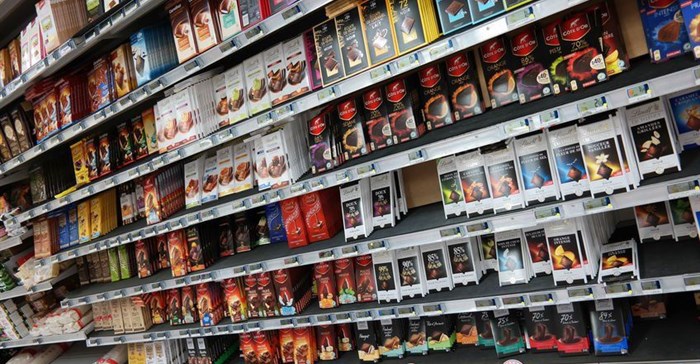
Shopping behaviours have largely evolved because South African consumers have become more purposeful in their shopping, says the company. Lockdown restrictions have resulted in shoppers buying bigger baskets of essential goods but shopping less frequently, within a shorter timeframe and closer to home. These new norms have been driven by social distancing and other measures retailers have put in place to lower the risk of infection and spread of the virus.
Russell Dennis, Mondelēz International's director category planning & activations, Southern, Central and East Africa, says that coupled with economic headwinds made worse by a year-on-year decline in disposable income and supply chains being challenged, it is increasingly clear that South Africa’s retail landscape – both in terms of traditional and modern trade – is facing significant hurdles.
“This shift in shopping behaviour has also seen a change in snacking behaviour because of different occasions and need states as a result of greater in-home consumption. As such, we have seen a rise in the snacking category, with biscuits and groceries like baking powder in particular becoming more popular as we see more activity in the home.
"Chocolate, on the other hand, has remained flat – even in light of the fact that Easter fell during the lockdown period. Data has shown that there is also a drop-off in gum and candy which could be attributed to less out of home activity,” says Dennis.
This is backed up by Kantar research, which has shown that eating habits are changing as people try to build a sense of normalcy and that snacking forms a key part of this.
“Our research found that 64% of people are snacking more throughout the day, and that 72% are trying new recipes – this is largely because, with more time at home, fewer opportunities to shop and scarcity of some ingredients, people are trying new recipes and likely making more from store cupboard ingredients,” says Norman Reyneker, director – retail, sales and shopper at Kantar.
This shift in snacking behaviour is not unexpected. Nielsen research found that South Africa is the second most price-sensitive country in the world, and with the pandemic broadly bringing about a drop in disposable income through job losses, retrenchments, salary freezes or even cuts, it makes sense that snacking behaviour will alter accordingly – and impact both modern and traditional trade.
“We believe that even as the lockdown continues, snacking will still take place as snacking is used to nourish the body, mind and soul with indulgence remaining a priority. Only the form it takes will change, based on different occasions and need states. We are likely to increasingly see snacking as an experience built around moments of joy, sharing or indulgence in the home, such as family snacking based on occasions like watching TV, lunching together and just munching in-between meal times,” adds Dennis.
And this is where the value of trusted brands comes in. Kantar's Reyneker says that shoppers want the familiarity of trusted brands, with 64% looking for and buying the same brands – driving opportunities for brands to step up and deliver trusted favourites that speak to how the consumer mindset is changing.
It is critical to take key learnings from past tough times to ensure that brands can remain relevant in future uncertain and challenging times, says Mondelēz. With this in mind, the company says it's always working to better understand the different snacking categories so that it can help drive the right snacking behaviours.
“We want to amplify our categories to get people to snack better – which means understanding the country’s retail landscape and adapting to its challenges agilely to stay relevant and play our part in rebuilding the economy by simultaneously helping our retail partners grow,” explained Dennis.
Brands have had to adapt to be more dynamic to navigate South Africa’s evolving retail landscape amid the new regulations and measures put into place. South Africa’s retail landscape typically lends itself more to destination shopping than convenience shopping – because South Africans love the full shopping experience, complete with touch and feel.
But the full shopping experience has largely been replaced by online shopping during the pandemic, with Kantar’s research showing that 86% of shoppers are doing so online and 85% are planning to continue shopping online even after the pandemic, driven mainly by convenience, time-saving and greater availability of specials.
“The pandemic has required us to up our game in terms of e-commerce and relook at our digital offering and what it means for snacking as shopper behaviour shifts. We understand there is going to have to be a different route to market – which will call for innovative solutions that ensure that snacking still happens. This is why we have partnered with retailers on e-commerce solutions that have gone live and allow South Africans to continue snacking seamlessly and conveniently,” says Dennis.
Mondelēz says it is sensitive to the current challenging environment the country finds itself in and is committed to assist where best positioned to. Thus far, the company has donated approximately R3m in product to orphanages and other organisations in need.